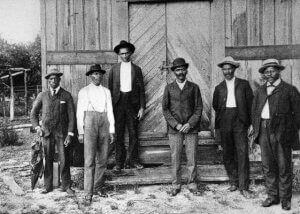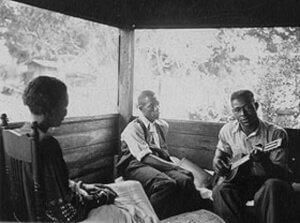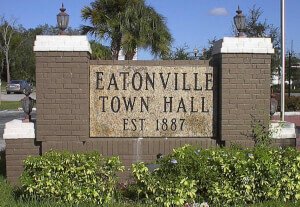Step into history with Eatonville, Florida, the USA’s oldest Black town, pioneering self-governance by freed individuals. Nestled just six miles north of bustling Orlando, this quaint municipality in Orange County stands as a beacon of resilience and progress.
While not the initial Negro settlement in American annals, Eatonville boasts a unique milestone: incorporation. In a historic move on August 18, 1887, twenty-seven ex-slaves united in a resounding vote, marking the birth of Eatonville as the nation’s first self-governed black community.

Forging Freedom: The Dream of Self-Governance
As the dust settled after the Civil War (1861-1865), former slaves wanted to be free and independent. But white landowners wouldn’t let them buy land. Despite this, Black people from Maitland, Florida, and other places forged a united front. They were determined to create their own safe and self-governing community. They dreamed of a lively place where Black people could be in charge, without being controlled by white people.
Settlement of Freedom: The Birth of Eatonville, Florida
In 1882, two white landholders, Josiah Eaton and Lewis Lawrence, agreed to sell large tracts of land to a group of black trustees from a local church. To help with the development of the settlement, Eaton sold Lawrence 10 acres.
Lawrence, a philanthropist from New York, donated an additional 12 acres to the African Methodist Episcopal Church on November 18,1885.
Elected as the town’s first mayor. Joseph E. Clark–an ex-slave from Georgia, played a prominent role in the development of the new town.
On the day of incorporation in 1887, the townsfolk had gained an additional 90 acres of territory. With 112 acres, the freedmen were ready to build new lives. The town’s population at the time was 27 residents.
The founders named their new Negro settlement after Josiah Eaton, and St. Lawrence AME church is named in Lawrence’s honor.

Zora Neale Hurston: Eatonville’s Literary Legacy
Eatonville’s most famous former resident is folklorist, anthropologist, and author, Zora Neale Hurston. She is best known for her novel, “Their Eyes Were Watching God.”
Zora was an infant when her family moved to the town in 1892. Her father served three terms as mayor of Eatonville.
In 1989, the expansion of a main road leading through Eatonville provoked controversy. To raise funds to fight against the proposed road project, Eatonville residents started the Association to Preserve Eatonville.
In 1990, the association launched the first Zora! Neale Hurston Festival. As of 2023, the festival is set to celebrate its 34th season.
Zora! Fest is a celebration of arts, history, and culture. The festival draws over one hundred thousand visitors to the small town.
Eatonville Florida’s Historic District
The Eatonville Historic District, designated and added to the National Register of Historic Places on February 3, 1998, encompasses 48 historic buildings, some dating back to the town’s inception. Among these structures are homes, churches, and community landmarks, each telling a story of Eatonville’s rich heritage.
Read More Stories:
Discover how Bob Lemmons: The Dynamic African American Cowboy was leaving his own mark in history during Eatonville’s development.

